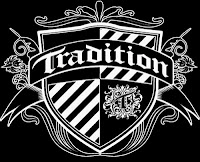 Contributed by “Nicodemus”
Contributed by “Nicodemus”
Tradition means giving votes to the most obscure of all classes,our ancestors. It is the democracy of the dead. Tradition refuses to submit to the small and arrogant oligarchy of those who merely happen to be walking about. Orthodoxy, G. K. Chesterton
Tradition is the living faith of the dead, traditionalism is the dead faith of the living. The Vindication of Tradition, Jaroslav Pelikan
First, let us establish Orthodoxy’s reverence for Scripture as the inspired Word of God right up front.
We have learned from none others the plan of our salvation, than from those through whom the Gospel has come down to us, which they did at one time proclaim in public, and, at a later period, by the will of God, handed down to us in the Scriptures, to be the ground and pillar of our faith. For it is unlawful to assert that they preached before they possessed “perfect knowledge,” as some do even venture to say, boasting themselves as improvers of the apostles.” (Irenaeus of Lyons, Against Heresies, Book 3, 1, 1)
Without passages like this, our Protestant friends to would have little to quote when they wish to pretend the Fathers prove their notion of Sola Scriptura! Ah, but it’s not so simple as a few truncated quotes. In this same article, Irenaeus continues with this:
Even if the apostles had not left their writings to us, ought we not to follow the rule of the tradition which they handed down to those to whom they committed the churches? Many barbarian peoples who believe in Christ follow this rule, having [the message of their] salvation written in their hearts by the Spirit without paper and ink. (in Cyril Richardson’s Early Christian Fathers 1970:374-375)
Orthodoxy’s reverence for Holy Scripture does not rest upon selective quoting of the Fathers. So please stay with us as we set a context for understanding Scripture within the Tradition which eventually gave us the New Testament. In this we avoid falling for a simplistic fundamentalism which divorces Scripture from its birth and use within Church history.
Scripture
There was no Scripture before Moses. Though blunt and even shocking, this sentence will not likely make most of our Protestant friends uneasy. The reason is because evangelical Protestants have little problem assuming Adam began a long history of what became a carefully maintained Oral Tradition, one passed down to Noah as the truth, all the way to Moses. Nor do human frailties, like errors in memory or transcription cause Protestants to blush. This is because they trust the Holy Spirit to secure the truth in oral transmission, so Moses (via Adam’s/Noah) wrote the revelation of God. (Note: Many early OT patriarchs were contemporaries: OLD TESTAMENT GENERATIONS LISTED ADAM TO MOSES)
So what do we know of the making of the OT canon of Scripture? Like the New Testament, it did not fall from the sky one day all neat, tidy and complete. It took centuries for the books and writings to be identified. Much is learned of from the making of the Greek version of the Old Testament. I will not repeat what is found in these excellent articles. But I do commend them to you for your instruction and edification. Read them here – NT canon, here – OT canon, and here – Which Came First.
There was no broadly recognized New Testament canon of Scripture before 350 AD. I suspect this blunt sentence stirs up more squirming in our Protestant friends. Marcion’s list was likely the first listing of gospels and letters. But Marcion and his list were both too hostile and anti-Jewish for broad acceptance by the early Church. He excluded James, Mathew and others. But if Adam’s Oral Tradition handed down to Moses for a thousand+ years does not upset Protestants, why would a similar Oral Tradition upset them for the New Testament the first 350 years of Church history?
Christ did not write a book. Nor does he urgently press His Apostles to write. They waited several decades to begin writing the New Testament. But we do have His promise of Pentecost and the Holy Spirit’s presence in the Church. Meanwhile, they taught their disciples their doctrine, rule of faith, sound words, Tradition – repeatedly exhorting them to guard and protect it. Protestant are defensive, if not panicked, by the reality of there being “No New Testament Cannon before 350 AD.”
The Gospel of Mark was likely written in the early 50s, 20+ years after the Resurrection, Ascension and Pentecost, then soon I Thessalonians. All the New Testament books were completed by the end of the 1st century (70 years after Pentecost). But these circulated in the early Church with a host of other gospel accounts and letters. Settling upon which Gospels and letters would comprise the New Testament, and which would be excluded, took several centuries. Protestants often instinctively obfuscate or blur the facts of historic scholarship. But simplistic fundamentalism does not stand the test of serious examination.
There is a natural unsettledness for Protestants to imagine life in the historic Church without neatly printed and bound Bibles (scrolls). Yet the Church not only existed but multiplied, flourished and covered the entire Roman world without a recognized New Testament Bible for a few hundred years. Even if you grant earlier dates to some writings, most books were local “letters” not broadly published. And when all finally became extant, they still had limited circulation, not to mention severe printing restrictions of book publishing in the ancient world. How did this early Church know what to do, and how to live without a settled New Testament?
Of course, the letters of Paul and the four Gospels (among many other writings) eventually trickled throughout Asia Minor and Palestine and eventually to Alexandria and Carthage (Egypt) and to Rome. But this took decades, and there were comparatively few copies printed by hand and quickly wore out. Fact is, few Christians, maybe even many Priests/Pastors and Bishops of the Church had a complete Bible as we know it, before 350AD. (Be it the seven decades the New Testament was being written, or the several hundred years of settling afterwards, the ahistoric nature of Sola Scriptura is inescapable during this period, regardless of how the Fathers related them to Tradition.)
Given the reverence for Holy Scripture Evangelicals have, it’s amazing how ignorant most are about the history of how the Bible (Old or New Testament) came to exist. Let me challenge my Protestants friends to read and think carefully about this by yourself. Talk with others later, after reading outside your own camp, thinking for yourself first. A good place to start is with The Emergence of the New Testament Canon.
Tradition
Frankly, one reason Protestants regard Holy Tradition as a likely enemy is because they’ve been led to believe loving Holy Tradition equals hating the Bible! But this (almost comically) is not true. Nor does Scripture itself assume all Tradition, the traditions of men, like the Pharisee tradition or worse yet, Roman Catholic tradition. Here is another simplistic fundamentalism that “would be laughable if not so tragic” situation. There are indeed traditions of men. The tradition of the Pharisees is certainly one man-made tradition.
But there is also another Tradition hidden and obscured from most Protestants – in the Bible – commended to the Church by the Apostles themselves. A good place to start is with Robert’s Blog post here: ‘IF NOT SOLA SCRIPTURA THEN WHAT? The Biblical Basis for Holy Tradition.’ Here he patiently reviews all the biblical texts relating to holy tradition like:
I praise you for remembering me in everything and for holding to the traditions, just as I passed them on to you. (I Corinthians 11:2)
Timothy, guard what has been entrusted to your care (I Timothy 6:20). What you heard from me, keep as the pattern of sound teaching, with faith and love in Christ Jesus. Guard the good deposit that was entrusted to you–guard it with the help of the Holy Spirit who lives in us. (II Timothy 1:13-14)
In the name of the Lord Jesus Christ, we command you, brothers, to keep away from every brother who is idle and does not live according to the tradition you received from us. (II Thessalonians 3:6)
There are many other passages of Scripture and Mr. Arakaki covers them all in a thorough but concise way most Protestants have never seen, much less seriously considered. I challenge you to read this article very carefully and completely alone, prayerfully asking the Holy Spirit to guide your thinking.
Holy Tradition is similar to the oral tradition Adam handed before Moses before wrote the Torah. Yet there is a difference worth noting. Holy Tradition is not only promised by Christ, it is clearly and positively commended in the text of Scripture. It is the Tradition of the Apostles, supernaturally inspired by Christ and the Holy Spirit to lead the Church to the Discipling of the Nations. We must understand Paul’s commission to Timothy in this light. (2 Timothy 2:2) What the early Church did, lived, how they worshiped (liturgy Acts 13:2), how they answered the heretic(s) in their Councils, is Holy Tradition.
This Holy Tradition has been reverenced by the Orthodox Church since the Patristic Fathers walked the earth. This Tradition can be studied, like the Greeks, Romans, Celtics, American Indians and Old South. However, there is far more here than merely the customs, habits and traditions of men.
Lessons from Prof. Clark Carlton
In his conversion Journey to Orthodoxy, Associate Professor Clark Carlton, Ph.D. makes several very important observation about the place of Holy Tradition. Reared as a Southern Baptist, he attended a Southern Baptist Seminary just as he’d begun to study Orthodoxy. There while he was at a Baptist seminary he came face to face with Holy Tradition.
Among the books I read was The Vindication of Tradition by Yale historian Jaroslav Pelikan. In it Pelikan drew a distinction between the intellectual rediscovery of tradition and the existential recovery of tradition. In other words, there is a great difference between simply recognizing what has gone before and genuinely claiming it for oneself. I had discovered the Church of history, the wisdom of the Fathers, and the liturgy, but I had yet to come to grips with all that such a discovery entails. (emphasis added)
In this insightful observation Professor Carlton differentiates how we see, then embrace Tradition. First, there is an intellectual discovery. We notice a tradition that is out there. A particular tradition shows up on your mental radar, perhaps due to a college roommate, teammate or class you take. You see the tradition much like a German student might see tradition in a Spanish Latin culture. But knowing and learning about its peculiar distinctives is very different from embracing it and claiming it as you own. Professor Carlton says, “I had discovered the Church of history, the wisdom of the Fathers, and the liturgy, but I had yet to come to grips with all that such a discovery entails.” (emphasis added)
But this is not all that confronted him. Professor Carlton continues:
Actually, I would amend Pelikan’s formula slightly at this point, for a further distinction needs to be made. There is also a great difference between claiming tradition for oneself and being claimed by tradition. I, along with Webber (Evangelicals on the Canterbury Trail, Robert Webber) and the contributors to his book, was perfectly willing to claim the historic Church and the liturgy for my own understanding of Christianity. Yet, I was still in control! I, in true Protestant fashion, was judge and jury of what would and would not fit into my kind of Christianity. I was willing to claim the historic Church, but I had yet to recognize Her claim on me.” (From First Baptist to the First Century)
Here Professor Carlton implies more than a Christian philosophy of history being the providential unfolding of God’s plan in time, in Creation. He gives us an excellent glimpse into the modern Protestant mind when it is forced to confront Church History and Holy Tradition.
The Protestant Christian stands outside of history and Tradition. Regardless of its attractiveness to him, he observes from a safe distance. From outside he can lay selective claim to as many or as few elements of that traditions he wishes to taste and embrace. He is like a careful diner before a vast smorgasbord. He might like a bit of sacramental this, and a taste of liturgical that. Yet he will take his doctrinal cuisine from yet another table. Professor Carlton says,
“Yet, I was still in control! I, in true Protestant fashion, was judge and jury of what would and would not fit into my kind of Christianity. I was willing to claim the historic Church, but I had yet to recognize Her claim on me.” (emphasis added)
Recently, some Protestant scholars and pastors have been exposed to historical studies and critical scholarship. They have been compelled to adopt Tradition as Useful Tool. The result has been an eclectic hodgepodge in which they pick and choose as they like from the ancient church and try to blend it with the Reformed tradition. The results have often been interesting, but all too much like Professor Carlton above. They are yet in control of how Orthodox, Roman Catholic or Reformed their Churches shall be.
Professor Carlton’s observation is striking. Can tradition have a claim upon a person? We might pause to ask how this is possible. We noted Adam’s passing on Truth via oral tradition did not bother Protestants much because they assume it was preserved from error by the providential guidance of the Holy Spirit. Here is our first hint, the unnoticeable introduction of a divine element into the passing on of Oral Tradition. If God Himself is managing, in ways we cannot see, the integrity of Oral Tradition, then those who like Moses end up writing it need not worry if they got it right. Scripture grows supernaturally, via the Holy Spirit, out of Oral Tradition.
Holy Tradition is thus the substance of divine providence. It is the work of the Holy Spirit in history. This providence and history is of a nature that we at some point can no longer hold it at arm’s length and pick and choose what has a claim upon us. If Holy Tradition is the work of the Holy Spirit (Pentecost in the Church) then it cannot be so easily ignored or jettisoned like some cultural folk lore.
Tradition in the Familial Body
Here, Holy Tradition is comprehended in a whole new light. With Pentecost as the cause, Holy Tradition changes everything. It never was merely the traditions of men. Indeed, the sure promise of Christ and the active presence of the Holy Spirit is our surety. If the Holy Spirit is the author and giver of Holy Tradition, then I am not only bound to embrace it – it has a sacred claim upon me. Like the law of God given through Moses was no take-what-you-want-of-it tradition of men, Holy Tradition is the gift of the Holy Spirit in history, our cherished joy, our wisdom and glory before the nations – and our duty to preserve and pass on! (See also this excellent article on the evangelistic nature of Holy Tradition in the Divine Liturgy.)
In sad contrast we saw recently in a Pentecost Blog where a Protestant scholar saw the Protestant view of Pentecost as BOBO theology: Blink-On, Blink-Off. The Holy Spirit comes and goes, for centuries at a time! History becomes practical Deism for hundreds if not a thousand years. Pentecost is thus series of temporary phenomena in Church History. The Holy Spirit is God with us, sometimes. Yet Christ promised He would never leave or forsake His Church, Bride and Body. By the Holy Spirit He is Emmanuel, God with us. This is why the Protestant view of Pentecost, as well as church history might be regarded as damnable. Again, Professor Carlton says:
It would take a great deal more reading and an even greater amount of prayer before I would be able to accept the historical Church on Her own terms and be judged by Her….[others] helped me to understand that the Holy Tradition of the Church is not merely historical continuity or rootedness. It is the context in which the Church lives out Her divine life and carries out Her divine mission. Tradition is, to use Vladimir Lossky’s phrase, the Life of the Holy Spirit in the Church. (emphasis added)
Gradually I came to recognize the fact that Holy Tradition has the same claim upon my life as the Gospel itself, for Tradition is nothing other than the Gospel lived throughout history. It is not my place to judge the Apostolic Tradition and decide how or if to incorporate it into my own religious tradition; rather Holy Tradition judges me and calls me to account for how I have handled that Good Deposit that has been committed to Christians. I finally began to understand Paul’s admonition to the Thessalonians-a passage I had never heard preached on in a Baptist church-”Therefore, brethren, stand fast, and hold the traditions which ye have been taught, whether by word, or our epistle.” (2 Thessalonians 2:15) (emphasis added)
Protestants rarely get this far in their thinking about history and Holy Tradition. (It’s likely many Orthodox have more caught this claim of Tradition upon them, than have been taught it?) What is particularly sad, is to see bright young Protestants come right to the edge of Holy Tradition’s claim upon them, only to lose their nerve and shy away. They see and know it well. But they fear to embrace it. They settle for holding it at a distance. What was once only intellectually unsettling has now become a crisis of moral courage. Will they follow through, or back away?

Refugees Leaving Their Homes
Honestly, it takes no small amount of courage to depart from a beloved tradition, especially one filled with many good things. Family pressures and the misunderstandings (hostility?) of friends, even the glory and name one might make for himself in the Protestant world, causes many to lose heart. So, they deny the claim upon them they know Holy Tradition and the Church has on them. They clothe themselves with what they know are spurious arguments, to only settle for far less than the full Orthodox Faith they know is the deposit of Apostolic Faith.
But what of those who do muster the moral courage to become Orthodox Christians? I’m thinking not only of Frs. Peter Gillquist (recently reposed), Jack Sparks, Richard Ballew, Gordon Walker and others who lead 2,000 parishioners into Orthodoxy in 1988. I’m also thinking of hundreds more Baptist, Lutheran, Reformed and Charismatic Pastors, Anglican Priests and the many laymen who have come to Orthodoxy since. In large measure they view their departure from Protestantism more an act of humble obedience than one of courage. The same is likely true of recent Protestant pastors, unmercifully savaged by many who do not know them, or the personal details of their departure. (Jason Stellman resigned from the PCA for reasons of conscience). These men made the wrenching decisions to switch church homes after much wrestling in thought and prayer. They deserve our prayers more than our condemnation.
It is interesting how Protestants tear up when admiring the courage of Martin Luther against the corrupt Roman Church of the late middle-ages. Luther’s plea was for the liberty to follow the dictates of his conscience: “because acting against one’s conscience is neither safe nor sound. God help me. Amen.” Is it not just a tad hypocritical that sincere men leaving Protestantism are not granted the same liberty of conscience Luther claimed? This is especially so given their appeal is not to the leading of their private, jiminy-cricket, individual consciences. Rather, those leaving Protestantism are most often gripped by far broader and historic claims than their private consciences – the Scriptures speaking within the Church and Holy Tradition like Professor Carlton.
So what do we say in conclusion? Our modern world surrounds us with more and more progressive, ever Reforming Protestant and Roman Catholic theological innovations? Do these lead us to a deeper love and reverence for the Faith and Worship the Apostles once for all delivered to the Church? No, they boldly presume to lead us away from Tradition toward that forever-in-flux new & improved promised land of progress. Much could be said here, but I will conclude with an excellent and potent quote. In his Amazon review of Pelikan’s The Vindication of Tradition, ”Matt” beautifully sets the weighty place for Holy Tradition within our modern context.
“After all, is not progress, that dogma of the modern era, the antithesis of tradition? Not quite, writes Pelikan. Only within the context of a tradition that has as its hallmark the ability to both hold the person within its embrace, while at the same time pointing beyond itself, can true progress be both understood as such and achieved, connected to the past and yet living within the potential of new growth. The modern error, and that of so many of the greatest heresies, is that it fails to maintain a connection with the whole. This is the modern iconoclastic temptation- to break the image of the past in the hopes of inventing it anew. It is destined to fall short.” (“Matt”)
“Nicodemus”



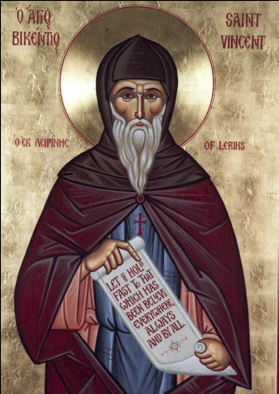
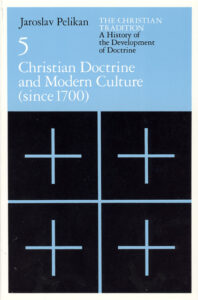
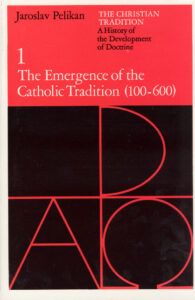
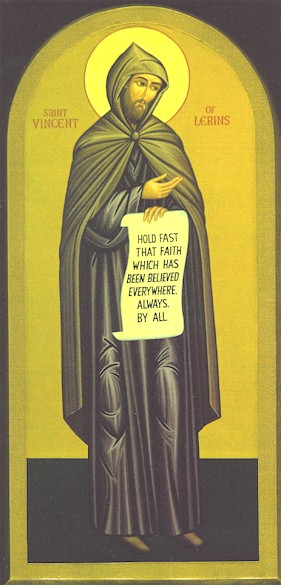
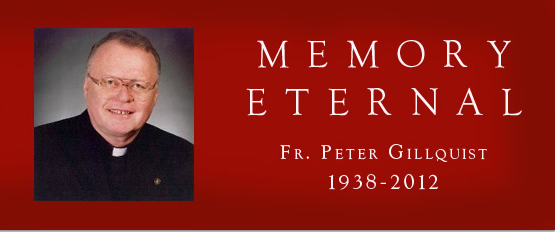

Recent Comments